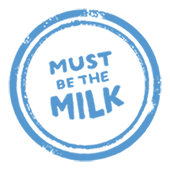Every year, one farm in each of our New England states wins the prestigious Green Pastures Award. The winning dairy farms are recognized and selected for their production records; herd, pasture, and crop management; environmental practices; contributions to agriculture and the local community; and overall excellence in dairying.
Meet the 2017 Vermont Dairy Farm of the Year!

Our mental snapshots of Vermont dairy farms likely include a few cows grazing lazily in green fields, near a little white farmhouse and a small red barn. And that’s not far from fact for many dairy farms in the Green Mountain state.
Vermont is also home to many large dairy farms, places that are just as idyllic, but with a lot more cows, a lot more land, and the ability to feed a lot more people. They also share the same commitment to their animals and the delicious dairy products they make. One of these farms happens to be this year’s Vermont Dairy Farm of the Year.
Fairmont Farm is the winner of the 2017 Green Pasture Award, given every year to one outstanding dairy farm in each of the New England states, with winners evaluated on production records; herd, pasture, and crop management; environmental practices; contributions to agriculture and the local community; and overall excellence in dairying.
As one of Vermont’s largest dairy farms, Fairmont Farm is in fact two East Montpelier farms and one Craftsbury farm, owned by Richard and Bonnie Hall and their nephew, Tucker Purchase. The Halls’ two oldest children, Ricky Hall and Clara Ayer, also work on the farm, which has 30 full-time employees.
The family recognizes a dairy operation this size has a unique responsibility, says Clara.
“It’s our responsibility, to ourselves, to our future generations, and to the industry in general to invite the public to come to the farm and learn more about how we farm,” she says. “We’re showing people how impactful a large dairy farm can be.”
Fairmont Farm stood out among this year’s Vermont nominees for a number of reasons, say award judges, including its efficiently managed and healthy cows, sustainable conservation practices and early adoption of new technology. It also was recognized for its commitment to educating the public about agriculture through farm tours, 4-H and summer day camps for kids.
About 85 percent of their 1,600 cows are registered Holsteins. Their milk is shipped to Cabot Creamery Cooperative, earning premiums and numerous awards for quality over the years. The size of the farm also means they can feed a lot of people, something that is core to the farm’s mission. Every day they make over 120,000 pounds of milk which translates into 12,000 pounds of Cabot cheese.
The farmers were early adopters of no-till cultivation, a method of growing crops with minimal soil disturbance, and in 2016 they began using a pipeline system to transport manure to several fields where it is spread or injected directly into the soil as a way to protect water quality, improve soil health and reduce fuel consumption. “There are a lot of positives being a large farm, in terms of our ability to be impactful,” Clara notes.
One way to share those positive impacts is welcoming the public to the farm, whether through tours or the summer day camp Clara helped establish.
“It was a way for us to get a different group of families here,” she says. “It’s fun for the kids, of course, but we’re hoping to reach their parents as well.”

